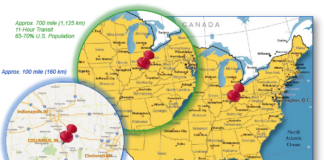CEOs are heading into 2018 with more optimism about the global economy, finds a new report from The Conference Board. Attracting and retaining talent ranks as the foremost concern not only among CEOs but also the rest of the C-Suite, including CHROs and CFOs, according to the C-Suite Challenge™ 2018 survey of over 1,000 business leaders. The survey asked C-level executives about the top challenges facing their organizations in 2018, and their strategies for meeting those challenges.

“Businesses appear to be starting 2018 with a healthy sense of confidence, a sentiment reinforced by our recent projection of three percent global economic growth for this year,” said Bart van Ark, report co-author and Chief Economist of The Conference Board. “However, the optimism remains tempered by a few factors – among them, a continuation of geopolitical and social tensions, uncertainty around global policy issues, talent shortages, and the disruption caused by emerging technologies.”
“To cope with worker and skill shortages down the road, this year’s survey results tell us that organizations are fundamentally rethinking the composition of their future workforces,” said Rebecca L. Ray, report co-author and Executive Vice President, Knowledge Organization at The Conference Board. “Nearly 80 percent of CHRO respondents foresee greater use of contingent non-traditional employees. Moreover, three-quarters of them anticipate a rise in digital labor solutions such as robotic process automation.”
A desire for organizational cultures that are inclusive, engaged, high-performance, customer-focused, and resilient is evident throughout the responses to this year’s survey. The desire for a “culture of innovation” ranks as the number-one innovation strategy in every region (Asia is the one exception, where it is third), every industry, every size company, and among CEOs and C-Suite executives alike. Also, the report finds the impact of the New Digital Economy is clearly being felt in the daily processes and practices of organizations, and through the emergence of new competitors from every part of the globe.
HOT-BUTTON ISSUES IN 2018
The report also asked business leaders about their “hot-button issues” – issues that will require a special focus this year. Key findings include:
- Fear of a global recession has plummeted. For 2017, CEOs globally ranked it as their number-one concern; for 2018, they moved it down to their 19th. However, CFOs are more concerned than CEOs about a global recession. They ranked it as their seventh top concern.
- The top concern of CEOs is attracting and retaining talent. This is also true for the rest of the C-Suite, including CHROs and CFOs.
- The second top concern of CEOs is creating new business models because of disruptive technologies. This is also true for the rest of the C-Suite, including CHROs and CFOs. (While the C-Suite is aligned in their first and second top concerns, they differ in their prioritization of other hot-button issues.)
- Concern about income inequality has risen sharply. For 2017, CEOs globally ranked it 18th; for 2018, it is their seventh biggest concern. It is of special concern in China, where it ranks third.
- Anxiety about global trade has increased. For 2017, CEOs globally ranked threats to global trade systems as their 15th biggest concern; for 2018, it is their eighth.
- Europe’s CEOs remain concerned about Brexit. For 2017, CEOs in Europe ranked the effects of Brexit as their eighth biggest concern; it ranks the same for 2018, an indication that Brexit remains on their collective radar. Overall, however, Brexit ranks a relative low 26th on the global list.
Business leaders detailed strategies they are employing to improve performance in six areas: human capital, innovation, operational excellence, customer relationships/corporate brand and reputation, regulation and risk, and sustainability. Key findings pertaining to innovation and human capital include:
Innovation
- Culture reigns supreme. To improve innovation performance in 2018, both CEOs and CHROs ranked as the most important strategy, create a culture of innovation that encourages cooperation across functions and business units and promotes risk taking.
- Less than half of CEOs (48 percent) see their organization as a technology leader in their industries. Moreover, less than 10 percent of CEOs globally say they are “extremely satisfied” with their organization’s ability to innovate, and they continue to struggle with how to measure innovation.
Human Capital
- Braced for a new world of work. Fewer than half (41 percent) of CHROs think their workforces in the next three to five years will be comprised predominantly of traditional, full-time employees.
- A culture of safe, ongoing communication. For human capital strategies in 2018, CEOs ranked as most important, communicate effectively from all levels (up, down, and across); communicate consistently and transparently. Also, in this area CEOs ranked as fourth, encourage an open, safe, and transparent speak-up culture.
The Conference Board’s C-Suite Challenge™ is the latest in a survey series first conducted in 1999 (previously The Conference Board CEO Challenge®). This year, The Conference Board expanded the range of respondents to other key C-Suite functional executives. Doing so has resulted in a more enterprise-wide view of the global business environment and a better understanding of how organizations are approaching the challenges of the digital age.














![[VIDEO] Get More for Your Business in Ardmore. Oklahoma](https://businessfacilities.com/wp-content/uploads/2024/02/maxresdefault-324x160.jpg)
